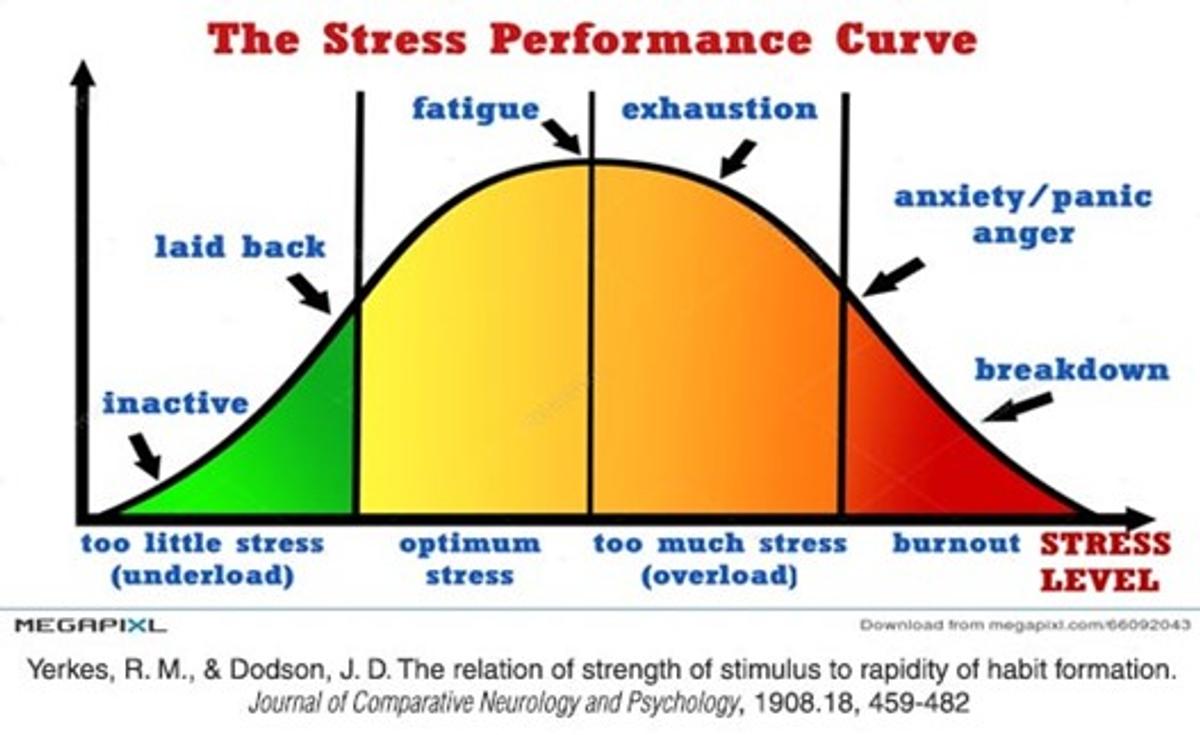Strategies for Stress
Helping our children deal with exam stress.

Strategies for Stress
Helping our children deal with exam stress.


Ross Mortimer
Wellbeing Counsellor
What is stress and is it any good for us?
Stress is a form of mental or emotional strain. When we experience stress we may have anxiety, fear, sadness, frustration, and irritability. Our body may experience these things as headaches, nausea, indigestion, bowel problems, sweating, heart palpitations or aches and pains. Stress may lead us to withdraw from people, being short tempered, tearful, and to experience problems sleeping. Stress can also cause us to modify our behaviour to mitigate the discomfort of our feelings; we may find that we have increased our intake of caffeine drinks or consumption of sugary and fatty foods in order to feel more energized or comforted.
Despite the impact of stress, the human body has a remarkable ability to re-balance itself.
The body reacts to fear by producing adrenaline in the typical flight, fight or freeze response and afterwards releases dopamine so we can come down from that fear response.


The flight, flight or freeze response is very useful when being chased by a lion or if we come across a venomous snake; it has been conditioned in humans since we were cave dwellers. However (as far as I am aware) cave dwellers weren’t sitting any exams! Why then is an English exam, for example, so triggering?
Education is seen as a pathway out of poverty in many countries. Where populations are high, competition is immense and good exam results can make a big difference in people’s quality of life. Doing well academically allows for more choices and options. Parents and carers encourage and support their children to put their best effort into education so they can reach their potential. However, we all need to be aware that there is a balance. Our body can re-balance itself, especially if we assist it to do so, but we can also push it too far - and it then becomes much harder for it to do so.


The Yerkes-Dodson Law (originally developed by psychologists Robert M. Yerkes and John Dillingham Dodson in 1908) tells us there is an optimal amount of stress. Despite its 114 year history, it still applies to (and is widely cited) in our modern context.
Without stress we don’t make changes. If we didn’t stress about getting good marks then we wouldn’t study; worrying about getting good marks makes people take time to revise and study.
However, once we push past the optimum point, our performance diminishes. This is the outcome that we really want to help students to avoid.
It could be argued that the last two and a half years have provided greater amounts of anxiety and fear than perhaps any other time in history. We are now a truly global society, full of real time information about worrying events. COVID19 by itself was bad enough, and the pandemic continues to challenge us. Experiencing this pandemic has turned many people’s understanding of what life is (and will be) on its head. Add to this the prospects of climate change, war and other pressing social issues, and we can see why so many are struggling with mental health problems. History will look back at our current group of students and they will be held in awe: how did you manage to complete VCE during all of that?
Parents and carers need to be talking with their children about what is happening for them. Working as a team always works best. What will help a child put more effort into study if they feel they need a push? What will help a child be able to stop and turn off if they are too diligent?
VCE students are taking on a big responsibility. Parents and carers need to acknowledge this, as well as the stress associated with it. Being gentle, kind, generous, compassionate, and nurturing our children at this time is the best response. Students need help to keep connected to peers, friends, community and - most importantly - with themselves. They need to identify their own needs and to communicate with their parents and carers to facilitate “time out” from their stress? Getting more sleep, time to relax, getting out of the house and exercising can all help. Parents and carers can support them by encouraging them to voice their needs.
Parents and carers can support their children to do their best, but can also help them to accept that what will be, will be. If the student has put in their best effort, then they have done everything that is within their control.
We can all remember sitting an exam that seemed easier (or harder) than we thought it would be. At times, we may have felt we did well and yet receive a lower mark than expected (or vice versa). Although a good ATAR can provide more options for future pathways, it is not the be all and end all. There are multiple pathways to entry into further education or employment these days.
More research is confirming the benefits of mindfulness and gratitude on personal wellbeing. All we have control over is the present moment, so what do we do now?
Students need support around deciding what is best for them now. Do they need to do more study, or do they need to turn off for a moment to recharge?
Students also need to realise that to be stressed about exams means that they are, indeed, very privileged. We are daily reminded that, across the world, there are many young people do not have the privilege of going to school - let alone pushing themselves to their educational best.
We also know that life satisfaction and happiness are based on the type of person you are, rather than your educational outcomes. People who are generous, kind, and grateful have a better understanding of life, have a clearer sense of purpose and meaning and are ultimately happier as a result.
Parents and carers can encourage their children to explore who they are, and to identify their individual meaning and purpose. Balancing this with their educational needs, children will then be more rounded, contented, happier people.
If you are a parent, carer or student who has concerns about stress, please contact the Student Wellbeing team for a chat.